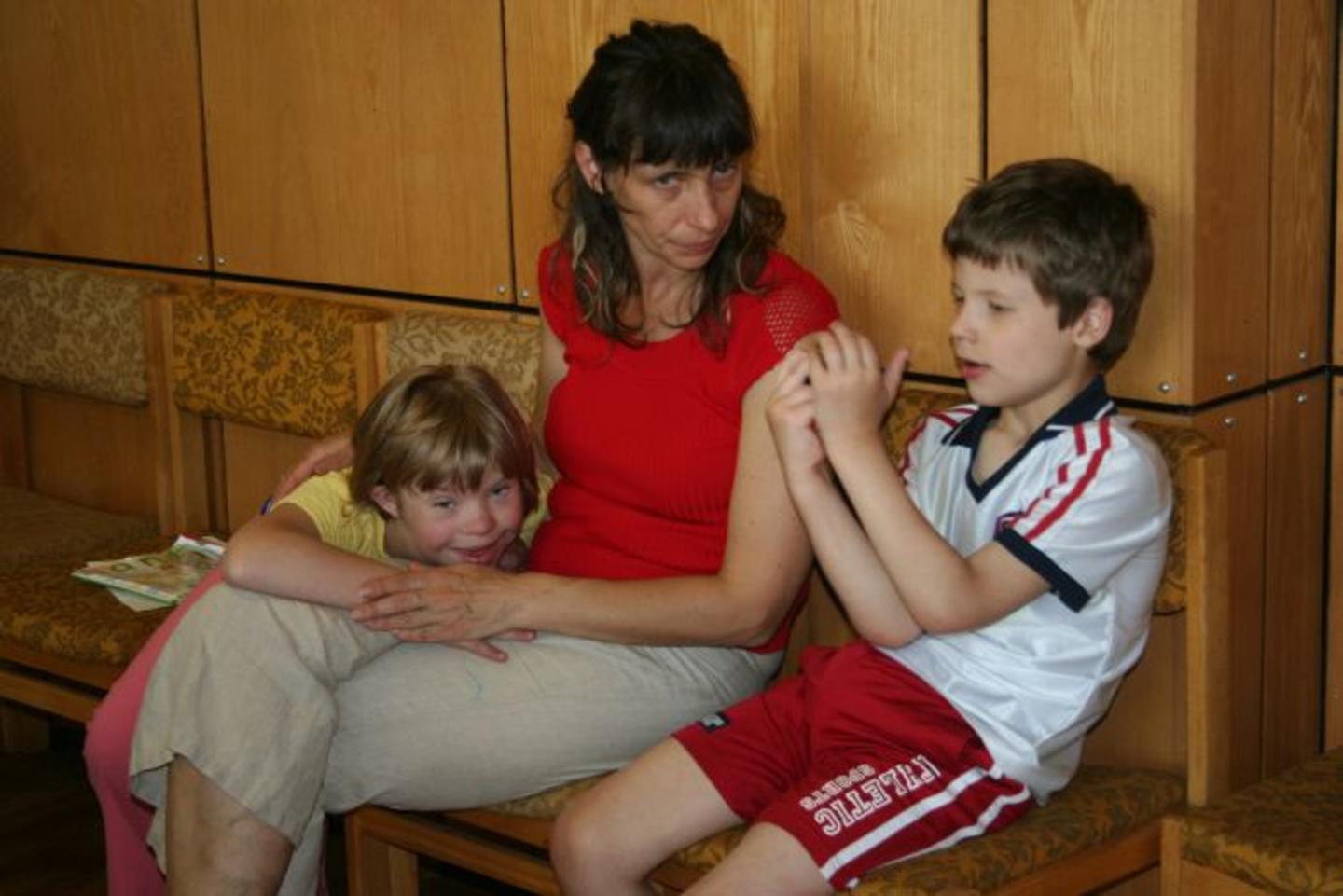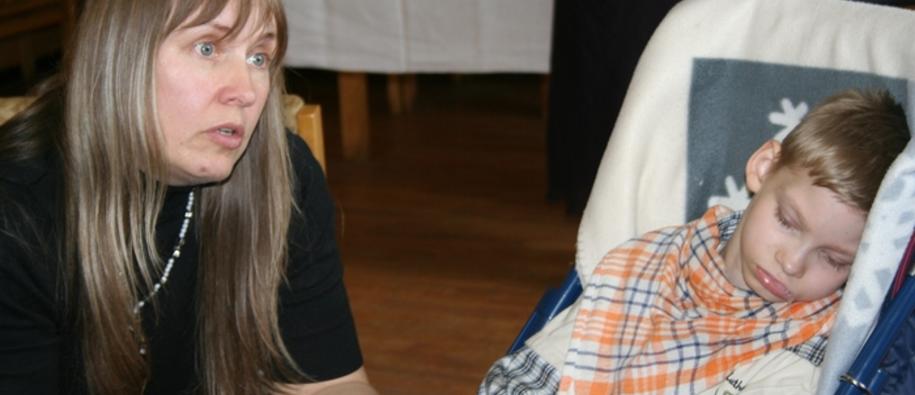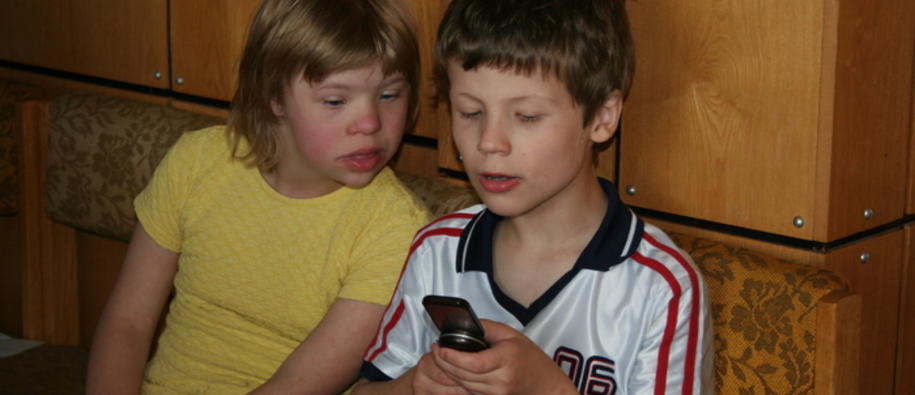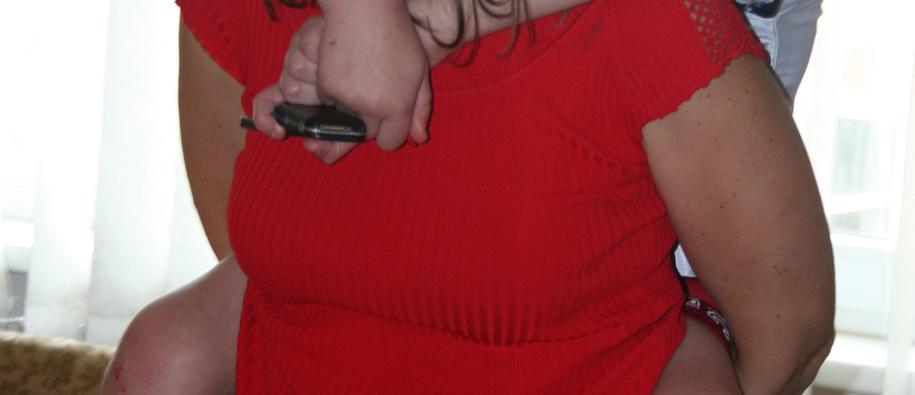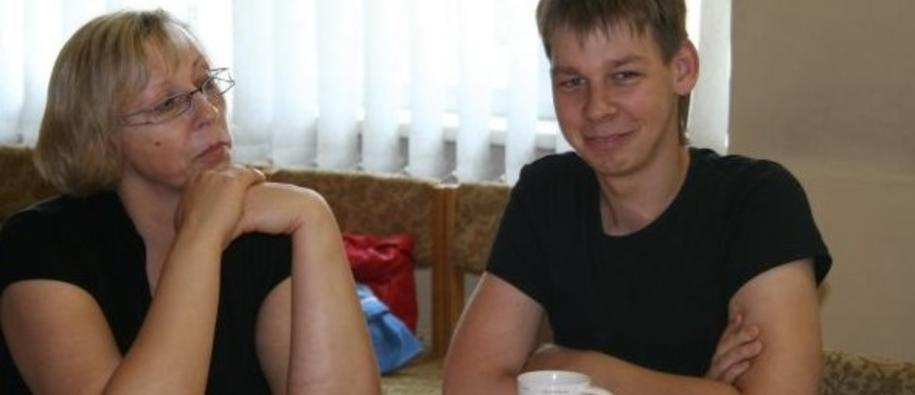"I have a motto for this life", Agita Stutiòa says. "You can't change the wind. But you can change the direction of your sail to go the way you would like to". Two o'clock in the afternoon, at the offices of the Velki Association at the Technical University in Latvia, across from the river Daugava, I meet four women who sharply divide their lives in two.
Each has a child with a developmental disability. Agita looks me in my eyes to make sure that I am listening. She has traveled 60 km, from Tukums to Riga, with her 10-year old son Darjuss, to meet me. He lies paralysed in her arms, eyes not fixating on anything in particular. She talks in Latvian. The translator sitting next to me will have to repeat everything she says.
Separating the "we"
In this room, in which abundant positive energy wraps around tales of tears, depression and despair, you quickly encounter the question "How do they manage?" The blunt and serious answer from each of them is: "Velki Association".
This Latvian NGO, run by husband and wife Ivars Velks and Liana Velka, has worked to improve the lives of families with disabled children over the last 16 years. Their network of 13 parent support groups, led by a psychologist, is one of their major achievements, teaching parents not only methods for stimulating their children, but also how to separate their lives from the ones of their children and re-discovering an "I" and a personality for the child.
Liana compares Latvia today with Scandinavia in the 1960s. "These children no longer stay at institutions where they merely exist; they are now entering into society". She pauses. "In Latvia there are a lot of scared parents who feel alone. The problem for the parents is that they are alone in organising all the daily routines. No one prepares parents for such children".
Poison or rope?
In 1999, Agita refused to follow the doctors' advice to place her child suffering from multiple disorders in an institution. "I was given this child and I had no idea what to do. My first idea was to poison, or perhaps hang myself". She winks at me.
Agita left the hospital for her home frightened, and three years would pass before she went outside again. Previous 10-hour stretches as a journalist and an active social life was replaced by 24/7 child-rearing. She says she cried for the first year. "All the things he could not do. It hurt inside to see children playing and smiling. I couldn't control myself and not cry".
Velki Association's support groups helped her back into society. Hearing someone else talk about what was so important and hurtful for herself partly dissolved her sadness and loneliness. "I understood that I had to try to find a way to live my own life. I can't only be a carer".
Closer to inclusive education
Liana says that even though the main state policy is inclusive education, there are few specially trained teachers. "The teachers lack methods," Liana says. Since 1993, the NGO has tried to introduce tactile stimulation, a technique based on the sensation of touch, in Latvia's special education system.
The method is commonly used in western special education systems, and positive results have been reported in Finland, Norway and Sweden. Last year, the EEA and Norway Grants provided the necessary resources to introduce the technique in Latvia.
The State special education centre and Liepaja special boarding school became interested at the start of the Velki Association's project. Together with parents and children with autism, Down's syndrome and multiple disorders, Velki Association and the two state institutions developed teaching material and trained parents and special teachers. The end-results - a book and an explanatory film - building on a Swedish introductory book on the topic, include step-by-step explanations and stories of parents who have tested the technique on their children.
Words through touch
Parents have reported increased concentration, calmer, more confident and happier children as well as improved contact with their child.
The mother sitting next to Liana Velka is Laimadota Landisa, a nurse from Riga. Viktoria, a hyperactive girl with Down's syndrome, lies quietly on her lap. Next to them, Sandra Bajâre pats 7-year old autistic Aleksis on his arm. I ask, "I see that you are all stroking your children, is this tactile stimulation?" Laimadota nods. "Yes, she demands this. Whenever she feels stressful or afraid, she comes and asks for it". Laimadota and Viktoria use tactile stimulation every day before bedtime. "Before I had to be strict to get her attention, now it is easy to get her to a state where she listens".
For children who have difficulties expressing themselves verbally, touch is a useful language to convey feelings. Elita Timma a nurse and masseur from Talsi, mother of Reinis (20) who was born with a brain haemorrhage and suffers from cerebral palsy, says she never could imagine the good tactile stimulation would do. "Reinis is much calmer now," Elita says. Reinis smiles, looking away when I catch his eyes. "Does he understand that we talk about him, and is he okay with that?" I ask. "Yes, he allows it to happen," Elita nods.
"The greatest thing"
Like many other NGOs in Latvia, Velki Association is run on grants; in other words, this project is a one-off campaign. But for Liana and Ivars, their project has succeeded. They have distributed 1,000 copies of the book, educated 181 special teachers and parents for free, and according to Ivars, "achieved the greatest thing". He proudly shows me a document in a plastic folder.
The Ministry of Education and Science has granted them a permit to educate teachers in tactile stimulation until 2011, in collaboration with the Liepaja Special Boarding School. "The use of the method in Latvian special education institutions has been officially approved. It can be made an official part of the curriculum in special education schools for children with special needs," Ivars says.
Their training program ended in June 2009, but the Liepaja Boarding School, Rudzati Special Boarding School, the Primary School in Cesis, and the pre-School in Valmiere have already introduced the method in their daily teaching.
Agita taps me on the arm. She is insistent that my story should not be a "weepy one". She asks me to put something optimistic at the end. "Maybe this information can help other families. Do not despair, learn something new, have interest in life, don't lose it," she says.
